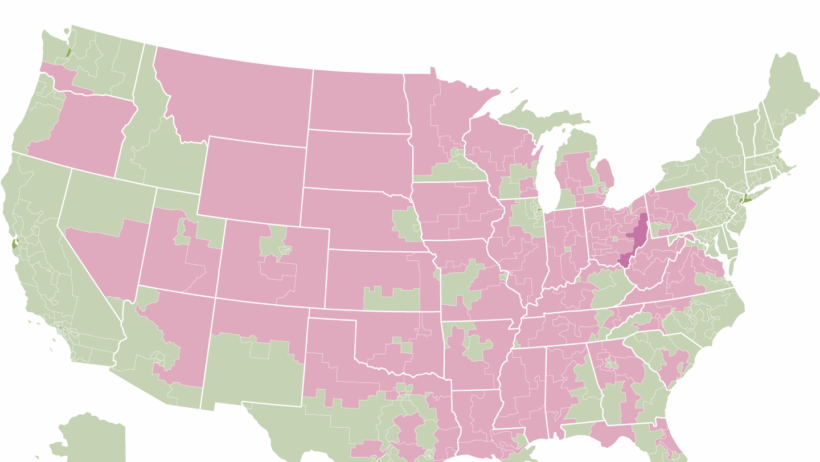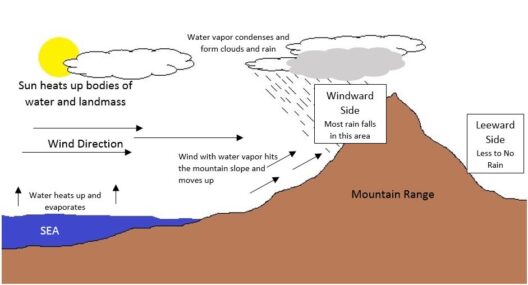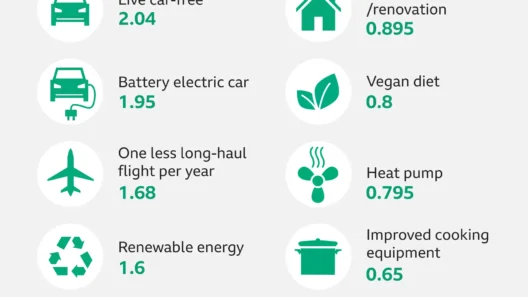In the contemporary political landscape, climate change has morphed into a pivotal issue that elicits vastly divergent perspectives across the political spectrum. Within the Republican Party, opinions toward climate change are characteristically fragmented, straddling a spectrum that ranges from outright skepticism to a moderate commitment to addressing environmental challenges. Understanding this internal divergence is essential for comprehending not only the party’s stance but also the broader implications for environmental policy and action in the United States.
At the core of the Republican opinion on climate change lies a significant faction that questions the scientific consensus on human-induced climate change. This skepticism is often underpinned by a belief in free market principles, where government intervention in the economy—such as regulations aimed at combating climate change—is viewed as an overreach. Individuals within this camp argue that climate policies can potentially stifle economic growth, harm job creation, and increase energy costs for consumers. The narrative of economic prioritization over environmental regulation resonates with many Republican voters, making the party’s position on climate both a reflective and reactionary stance to perceived governmental encroachment on personal and economic freedoms.
Another influential aspect of the Republican perspective on climate change is the geographic and demographic variability within the party itself. In regions heavily reliant on fossil fuels, such as coal or oil industries, there is often significant resistance to climate policies perceived to threaten livelihoods. Rural communities, which form a cornerstone of Republican support, frequently express concerns that strict environmental regulations could lead to job losses and economic decline. Consequently, Republican politicians from these regions feel an imperative to align with constituents’ apprehensions, framing climate change as a less pressing issue in the hierarchy of political concerns.
Conversely, a growing segment of the Republican electorate displays an evolving awareness of environmental issues, recognizing the implications of climate change on national and global scales. This cohort tends to advocate for market-driven solutions to climate-related challenges. Embracing renewable energy technologies not merely as a remedy for climate change, but also as an opportunity for innovation and economic growth, these Republicans highlight the potential for clean energy jobs. This perspective suggests a willingness to engage with climate discourse, albeit from an angle that emphasizes business acumen and economic feasibility rather than government regulation.
Moreover, the generational divide within the Republican Party is becoming increasingly apparent. Younger Republicans exhibit more progressive attitudes regarding climate change compared to their older counterparts. This demographic displays a heightened sense of urgency regarding environmental degradation and climate impacts, partly influenced by growing awareness of climate science among their peers. This shift is reflected in the increasing popularity of environmental stewardship within conservative circles, leading to advocacy for responsible environmental practices that resonate with traditional Republican values such as stewardship and conservation.
As debates around energy independence continue to evolve, the Republican narrative on climate change can be further elucidated through its relationship with energy production. The emphasis on maintaining energy independence has often taken precedence over climate concerns. Many Republican leaders promote the notion that domestic energy sources, including fossil fuels, contribute to national security. This framing complicates the dialogue around climate policy, suggesting a prioritization of energy security over a more comprehensive approach to environmental stewardship.
However, it is essential to consider that the Republican discourse on climate change is not monolithic. Prominent conservative figures and organizations have begun to champion a more proactive approach to environmental policy, acknowledging the importance of preserving natural resources while simultaneously advancing economic growth. Groups such as ConservAmerica promote conservation efforts and advocate for innovative solutions to environmental challenges that gain traction among conservative audiences.
Furthermore, the role of misinformation in shaping Republican opinions on climate change cannot be overlooked. Various media channels and political factions have perpetuated narratives that cast doubt on scientific consensus, effectively politicizing an issue that should ideally transcend party lines. This environment of skepticism can engender public confusion, disproportionately affecting the Republican base’s perception of climate issues and diminishing the urgency often espoused by climate scientists and advocates.
In traversing the intricate landscape of Republican attitudes toward climate change, one can discern an ongoing evolution. While traditional skepticism and economic concerns remain vital aspects of the discourse, a significant segment of the party increasingly acknowledges the need for policy solutions that address climate change, albeit through a lens of innovation and market-based strategies. The internal divisions within the party highlight a critical tension: balancing economic imperatives with evolving environmental realities.
Looking ahead, the Republican Party’s stance on climate change is likely to continue to shift as the effects of climate change become more prevalent and noticeable. As extreme weather events, rising sea levels, and other manifestations of environmental degradation increasingly affect constituents, there may be a recalibration of priorities. The interplay of economic, environmental, and political considerations will undoubtedly shape the future dialogue within the party as it navigates the complexities of climate change.
In summary, the Republican perspective on climate change is characterized by a rich tapestry of beliefs, motivations, and challenges. This multidimensional framework, which ranges from staunch skepticism to an emerging embrace of climate action, reflects broader societal attitudes and underscores the critical importance of informed, constructive discourse on environmental policies. Only through acknowledging these complexities and fostering dialogue can effective solutions to climate change be achieved that resonate with all segments of the population.





